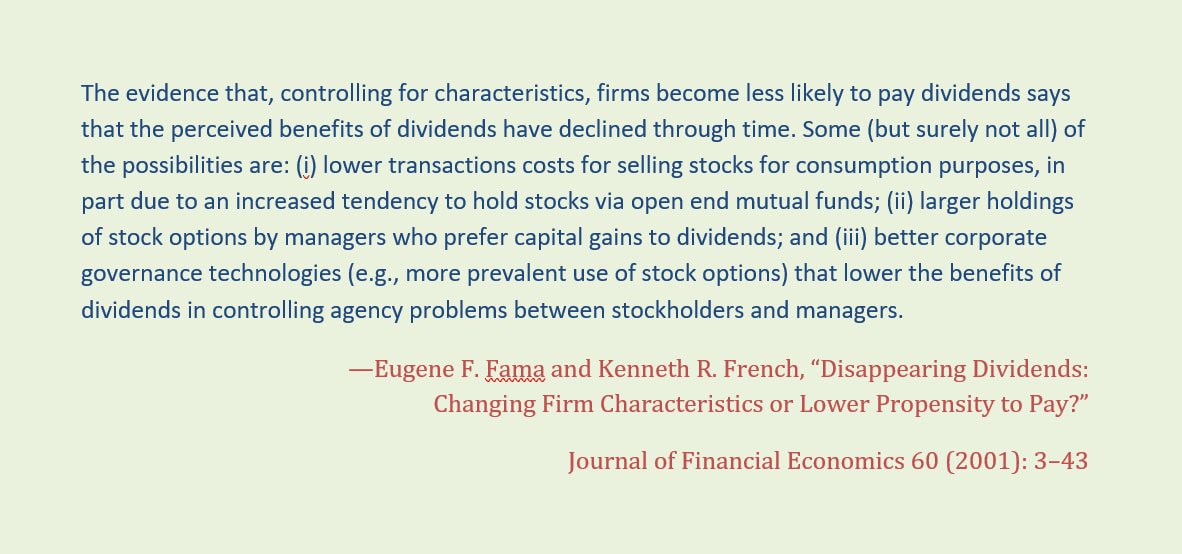Dividend
Dividend is the distribution of cash, stock, or other property by a corporation to its shareholders, as declared by the board of directors. It is not a legal obligation and is paid at the discretion of the board. Dividends represent a portion of the company’s earnings shared with shareholders and can signal the company’s financial health and future prospects.

Many corporations pay cash dividends to their shareholders despite the tax consequences of these dividends and the fact that these funds could otherwise be plowed back into the corporation for investment purposes. These dividends are often viewed as a signal of the corporation’s future prosperity.
Corporations may also “pay” stock dividends or split the stock, dividing the equity pie into smaller pieces, the announcement of which is often viewed as positive news by investors.
In addition to dividends, a corporation can distribute funds to shareholders other than in the form of a cash dividend. For example, a corporation may repurchase its shares from shareholders through open market purchases, tender offers, or targeted block repurchases.
The purpose of this chapter is to describe the mechanisms of providing funds to shareholders in the form of dividends, stock dividends and splits, and stock repurchases.
A dividend is the cash, stock, or any type of property a corporation distributes to its shareholders. The board of directors may declare a dividend at any time, but dividends are not a legal obligation of the corporation-it is the board’s choice. Unlike interest on debt securities, if a corporation does not pay a dividend, there is no violation of a contract, nor any legal recourse for shareholders.
When the board of directors declares a distribution, it specifies the amount of the distribution, the date on which the distribution is paid, and the date of record, which determines who has the right to the distributions. Because shares are traded frequently and it takes time to process transactions, the exchanges have devised a way of determining which investors receive the dividend: the exchanges take the record date, as specified by the board of directors, and identify the ex-dividend date, which is two business days prior to the record date. The ex-dividend date is often referred to simply as the ex-date.
Therefore, there are four key dates in a distribution:
- The declaration date, which is the date the board declares the distribution.
- The ex-dividend date, which is the date that determines which investors receive the dividend. Any investor who owns the stock the day before the ex-date receives the forthcoming dividend. Any investor who buys the stock on the ex-date does not receive the dividend.
- The date of record, which is specified by the board of directors as the date that determines who receives the dividend.
- The payment date, which is the day the distribution is made.
Most dividends are in the form of cash. Cash dividends are payments made directly to shareholders in proportion to the shares they own. When cash dividends are paid, they are paid on all outstanding shares of a class of stock. A few companies pay special dividends or extra dividends occasionally-identifying these dividends apart from their regular dividends.

